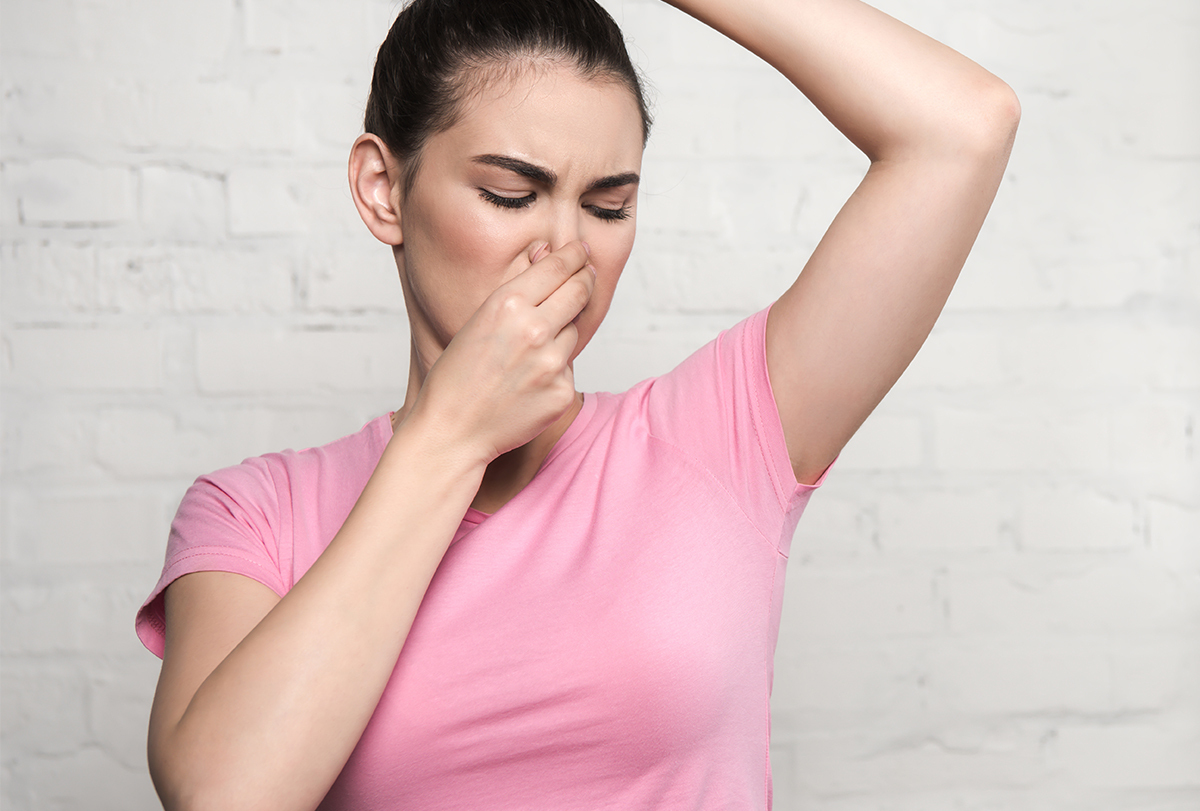Sweating is a physiological phenomenon and you don’t need to be ashamed of it even if you sweat like a horse (which interestingly is the only mammal that can sweat, other than humans). However, the odour that accompanies sweaty armpits makes us anxious even before we know it. Let’s understand why sweat is associated with body odour, and how to avoid the embarrassment that comes along with it.
Why do we sweat?
We really can’t understand why sweating has been associated with poor hygiene. Your body functions well when everything is at an optimum level: temperature, pH, and fluid content. Talking about temperature, 98 degrees Fahrenheit is the optimum temperature at which our body functions best. Whenever the temperature in our environment fluctuates, the thermostat of our body (the hypothalamus) makes certain adjustments and instructs the body to either conserve heat or lose it. Thus, our body needs to sweat to lose the extra heat and regulate temperature. Thus, sweat is excreted out of your body via the sweat glands, and when this sweat evaporates, you start to cool down.
Other reasons (besides temperature regulation) for our body to “break a sweat” can be anxiety/nervousness (because of an adrenaline surge), and eating spicy food/ gustatory sweating (capsaicin-induced sweating).
Why does our sweat come along with odour?
Fun fact: Sweat itself does not have any particular bad smell. Your body has two types of sweat glands: Eccrine glands and Apocrine glands.
Eccrine glands are distributed all through your body. However, Apocrine glands are particularly concentrated in regions like the armpits and groin, and they produce thicker, milky fluid rich in lipids and proteins. The smell is produced when bacteria break down the contents of these secretions.
Top tips to prevent body odour
1. Shower every single day: If you are worried about the smell, you should shower or take a bath daily to avoid bad odour, especially if you are physically very active. However, do not keep the water temperature very hot or else you take the risk of stripping the skin of the essential oils.
2. Use an antibacterial soap: Antibacterial soaps stop the growth of odour causing bacteria and can contain ingredients like benzalkonium chloride, tea tree oil, and eucalyptus.
3. Use a good quality antiperspirant and deodorant: Antiperspirants are substances that work by blocking the pores on your skin. Aluminium, which is a major component of most antiperspirants, reduces sweat flow and reduces the number of bacteria on the skin. Deodorants, on the other hand, do not reduce the release of sweat. But they play a major role in masking the smell associated with excessive sweat.
4. Wear breathable fabrics: Sweat-absorbing fabrics, which include those made up of cotton, bamboo, and linen, draw water from your skin and help it evaporate. On the other hand, sweat-resistant fabrics like polyester and nylon do not let sweat escape through them.
5. If you prefer it, shave/ wax your armpits: Hair can absorb and retain water. And it is not a hidden fact that bacteria thrive in a warm and humid environment. So, if you decide to shave or wax, you will get major relief from the odour.
6. Do your laundry regularly: Sweat can be trapped in your clothes, which can lead to sweat pits and accumulation and growth of bacteria. You should wash your clothes regularly.
7. Do not use fabric softeners: As fabric softeners sit on top of your clothes and block the pores in them gradually, they ultimately decrease the breathability of your clothes. Avoid using fabric softeners as much as you can.
8. Eat the right food: Spicy food can make your mouth “hot”, which essentially triggers your brain the same way as a hot environment would. Your hypothalamus is activated, triggering your body to get rid of the extra “heat”, a phenomenon also known as Gustatory Sweating. Avoid eating excessively spicy food.

